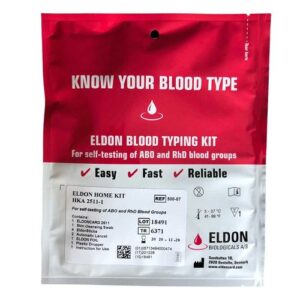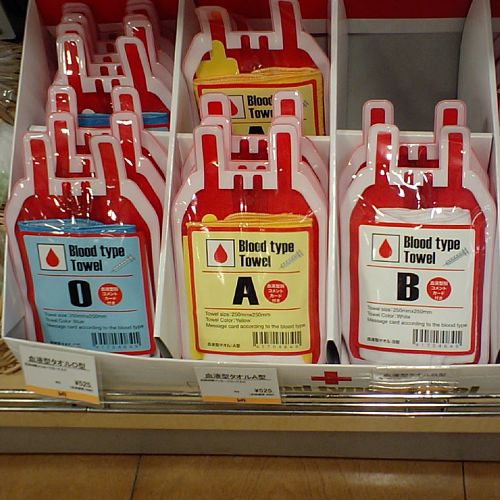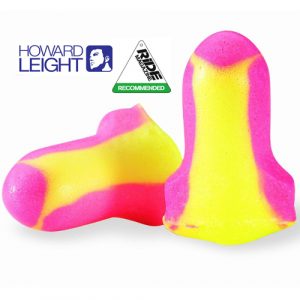Blood types were discovered in 1901 by Austrian scientist Karl Landsteiner. He identified the main human blood groups, types A, B, AB, and O. For this discovery, Landsteiner received the 1930 Nobel Prize in Physiology or Medicine.
The different blood types are determined by the presence or absence of certain molecules called antigens on the surface of red blood cells. People with type A blood have A antigens, type B have B antigens, type AB have both A and B antigens, and type O blood has neither A nor B antigens.
In 1940, Landsteiner and Alexander Wiener uncovered another important blood group system, known as the Rh blood group. This refers to the Rh (or Rhesus) factor, an antigen found on red blood cells. If your blood cells have this antigen, you are Rh positive. If they do not, you are Rh negative.
The most common Rh positive blood types are A positive, B positive, AB positive and O positive. Meanwhile, A negative, B negative, AB negative and O negative blood types are Rh negative.
Alongside the ABO and Rh systems, there are currently 35 known human blood group systems, representing over 300 red blood cell surface antigens. But ABO and RhD (Rh positive/negative) are the most significant in determining blood type compatibility.
Blood Type Basics
You will have one of four types of blood, specifically A, B, AB, and O. The blood type you have is determined by your genetics. Blood types are further classified as positive or negative, which refers to Rh factor. The Rh factor is a protein that is found on the surface of red blood cells in those whose blood type is positive.
In the UK, the most common blood types are as follows:
- O positive: 35%
- O negative: 13%
- A positive: 30%
- A negative: 8%
- B positive: 8%
- B negative: 2%
- AB positive: 2%
- AB negative: 1%
As can be seen, the most common blood group in the UK is O, followed by A positive. AB negative is the rarest of the 8 main blood types accounting for just 1% of the population.
Did you know your blood type might influence your health beyond transfusions? Recent studies have uncovered fascinating links between blood types and various health conditions. For instance, individuals with type O blood tend to have a lower risk of heart disease but may be more susceptible to norovirus infections. Those with type A blood might face a higher risk of stomach cancer, while type B carriers could have a slightly elevated chance of developing pancreatic cancer. However, don’t panic! These associations are still being researched, and your overall lifestyle plays a much more significant role in your health. It’s just another intriguing aspect of our complex biology that scientists are eager to unravel.
A common question we hear – “How Can I Find My Blood Type?”. Surprisingly, finding out your blood group is not as easy as it should be.
In fact, if you were to carry out a quick survey at school or work, you might find that more people know their astrological star sign than they know what blood type they are. Quite astonishing really!
Your blood type is often not checked by your primary care provider. In the UK, your GP won’t check your blood group type unless there is a medical need to do so.
Generally, the only way to find out someone’s blood type is for a sample of their blood to be tested. If you don’t know your type, you can find out with a home blood group test or by giving blood.
When Might My Blood Type Be Checked?
There are certain situations in which your doctor may need to know your blood type for medical reasons. For example, if you need a blood transfusion, your doctor needs to know what blood type you are in order to ensure you receive blood that is compatible with your own. Giving someone the wrong blood type can trigger an immune response, which leads to a transfusion reaction, which can be very serious and even life-threatening. Other times your blood type will be tested include:
- When you donate blood or blood products,
- When you need surgery,
- At the point when you are considering donating an organ or blood marrow,
- If you are pregnant. When your blood type is negative and your partner’s blood type is positive or unknown, you will need an injection to prevent your body from developing antibodies in the event that your baby’s blood mixes with your own.

What Is the Difference Between the Blood Types?
Blood type refers to the proteins, called antigens, found on the surface of your red blood cells. There are two types of antigens, A and B. Blood type A has the A antigen, blood type B has the B antigen. If your red cells have both types, your blood type is AB, and if it does not have these antigens, your type is O. The antigens cause your body to produce antibodies. These are proteins found in the liquid part of your blood that are responsible for fighting off invaders (and which are responsible for transfusion reactions when the wrong blood type is given).
Aside from the A and B antigens, there is another protein called the Rh factor. If you have this protein, you are Rh positive, while if you do not, you are Rh negative. Knowing your blood type is important, especially in cases of blood transfusion and organ transplantation.
Why Is It Important That I Find My Blood Type?
Any time a person needs extra blood, medical personnel will need to know their blood type and the blood type they are being given. If your type is A, your body will attack type B and vice versa. If your type is O, your body will attack all other types. Type O is considered to be a universal donor, because there are no antigens on the surface of the cells to be attacked. Type AB is considered a universal recipient because all other types are compatible.
In addition to transfusions, your blood type can also affect your health. Recent studies have shown that certain blood types may be at higher risk for certain health conditions. For example, individuals with type A blood may be more susceptible to heart disease, while those with type B blood may have a higher risk for pancreatic cancer. Knowing your blood type can also help you make informed decisions about your diet and exercise routine, as some blood types may benefit from certain foods or exercises more than others.
If you donate blood, your type will be checked and noted on your blood donor card.
Can I Find My Blood Type with a Home Blood Group Test Kit?
Yes – a home blood group test kit will help you to identify what blood group you belong to. At Zoom Health we offer a simple test that takes just a few minutes and a pinprick of blood to give results. After using this kit you will know your blood type (A, AB, B or O) and rhesus factor (Rh negative or Rh positive).
Our blood group test kit includes a sterile lancet for obtaining blood, an alcohol swab, sterile plaster, comb application device, blood transfer pipette, a colour result chart and instructions.
Firstly, the test is not hard to carry out but does require that the instructions are followed step-by-step in order to get a correct result. Initially, you should take some time before starting the test to read the instructions so that you have a clear understanding of what to do when you begin.
In conclusion, if you are often asking yourself “How Can I Find My Blood Type?”, this blood group test kit might be ideal for you!
How to Use the EldonCard: Home Blood Type Testing Kit
EldonCards offer the simplest way to work out your blood type in the comfort of your own home, with results in just a few minutes.
When you buy one of these EldonCard kits from Zoom Health, you will receive the following:
- EldonCard for the actual blood test
- A single-use sterile lancet
- A pipet (dropper)
- An Alcohol wipe
- Four EldonSticks
- Illustrated instructions
- EldonFoil
You will find that taking the blood test is easy and you can carry it out with little fuss. Just make a tiny hole in your finger with the lancet and let a small drop of blood fall onto an EldonStick. From the stick, transfer the blood to the four reagent circles on the test card.
The blood type test is easy to use for everyone: You simply prick a tiny hole in your fingertip, let a large drop of blood fall onto an EldonStick and transfer your blood to the four reagent circles. Hold on for 40 seconds and the test card informs you as to what blood type you have.
Photo Credit: “Blood type towel” (CC BY-ND 2.0) by MShades
Zoom Health is a leading UK supplier of Home Health Tests and Earplugs





